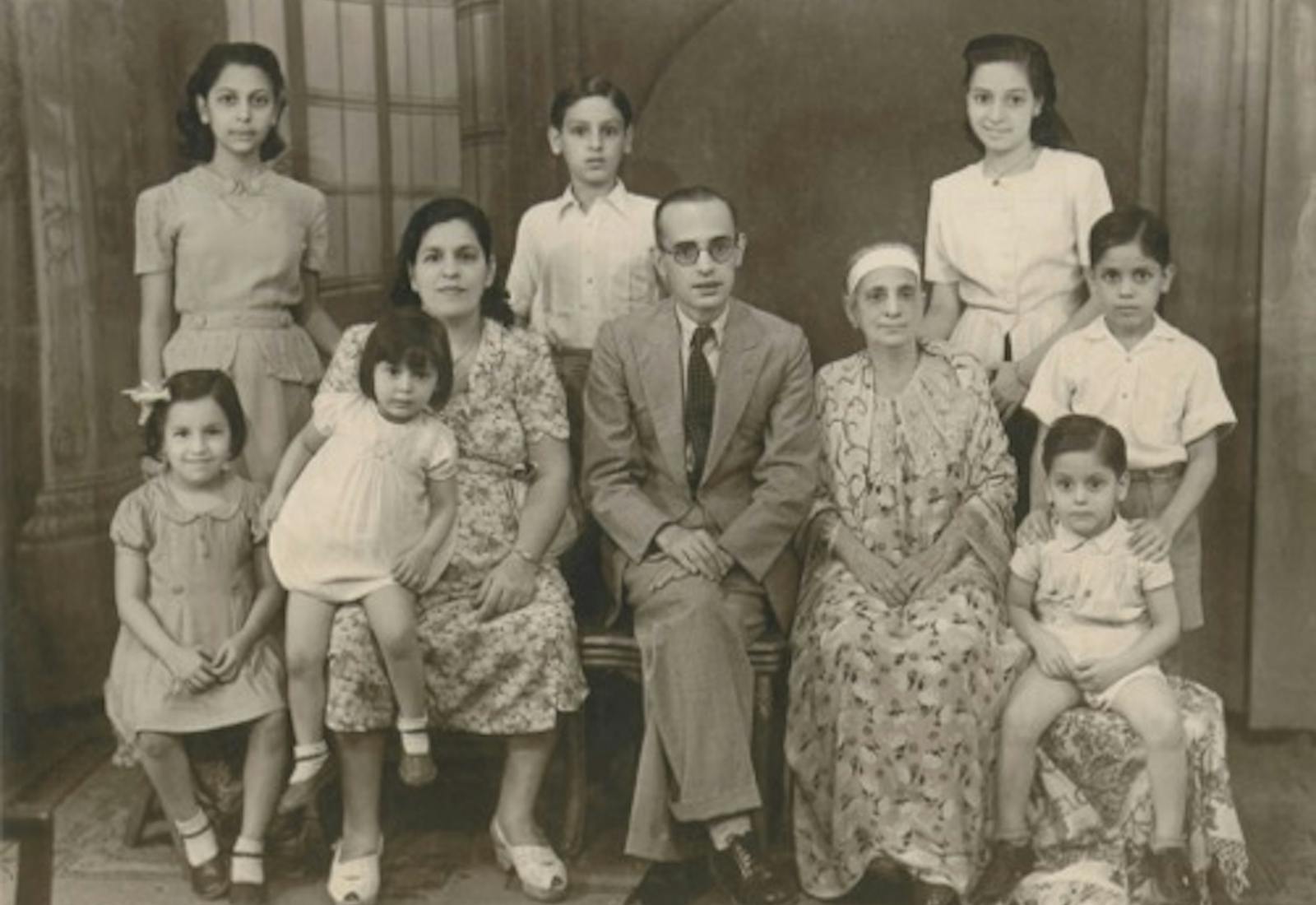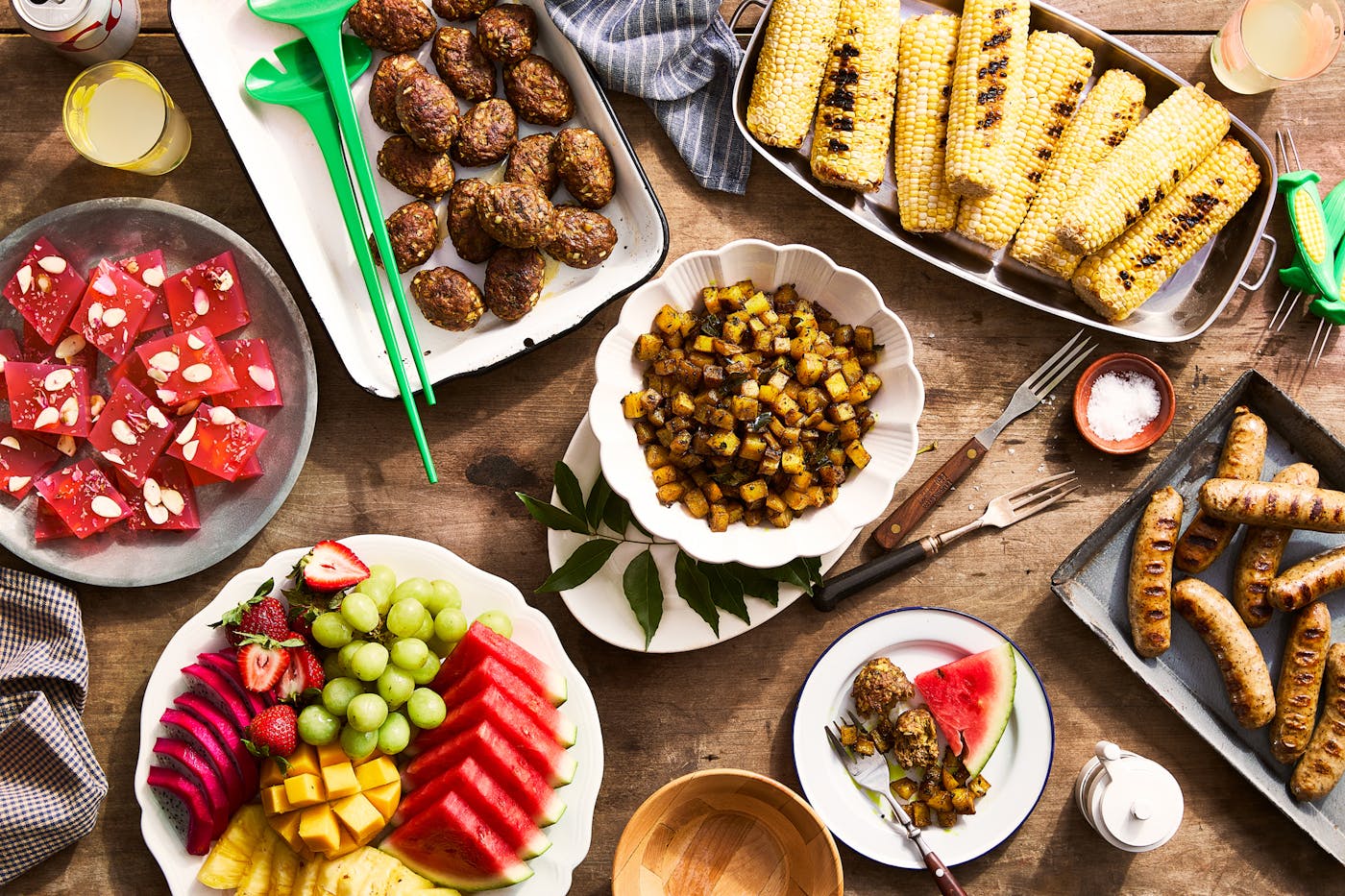Shared by Elana Benjamin


“We were straddling two worlds,” writer and cookbook author Elana Benjamin explains of her childhood in Sydney, Australia. At her Ashkenazi Jewish day school, Shabbat blessings and songs were sung to different tunes from the ones in her home — and her Seder didn’t look like the ones her friends celebrated. “Everything I learned at school was very different from everything that was going on at home,” she says.
Elana is from the Baghdadi Jewish community of India, which started to migrate from Iraq and the surrounding areas to India in the 18th century. At its peak, the community only counted 5,000 members, Elana explains in her book “Indian-Jewish Food: Recipes and Stories from the Streets of Bondi.”* And, as India gained independence in 1947, they scattered to Israel, Canada, England, and Australia, like her family.
It wasn’t just the songs and tunes that differed in her community, it was the food. On Rosh Hashanah, instead of marking the new year with sliced apples and honey as Ashkenazi Jews do, they enjoy apple jam. And for Shavuot, they traditionally celebrate with kahi, a flaky flatbread similar to paratha topped with powdered sugar.
In Sydney, she explains: “The new arrivals used food as a means of retaining their cultural identity — [they] cooked the familiar Indian-Jewish food of home.” And they shopped at an Indian grocer called Eze & Son, which was opened by a family who lived in Baghdad, Rangoon, and Calcutta before settling in Australia.
While the Shabbat dinners of her childhood were celebrated at home with just her parents and brother, Saturday nights were a big family affair at her Nana Hannah’s two bedroom apartment. A mother to 9 children, there was always a gaggle of cousins at the gatherings. “She would make us a traditional Iraqi-Indian feast,” Elana recalls. Some weeks there would be chitarnee or a chicken made tangy with vinegar, kubbeh dumplings in a beet broth, and aloo makala, a potato dish whose name is a mashup of Hindi and an older form of Iraqi Arabic.
As a child, Elana would barely touch most of the food, she says, referring to herself as junglee, a Hindi term that means wild or uncultured — but in her family, it also means someone who doesn’t appreciate good food. “For me, the great joy was seeing my cousins every week and playing with them,” Elana says. Cricket was often their game.
It continued at family barbecues at her uncle Sass and aunty Rosina’s home at the start of summer. Alongside grilled sausages and ears of fresh corn, there was aloo bhaji or potatoes with fresh curry leaves, shiftas or ground beef koftas, and a jelly-like dessert called agar-agar made with rosewater and pink food coloring to turn it to a rosy color. And in a nod to Australian tradition, there was often a pavlova.
Documenting her family and community’s recipes wasn’t something Elana always planned for. But after she wrote a memoir, readers started to ask her for recipes. Initially, she declined. “But over time, I realized that if I didn't learn how to cook those things, it would just kind of die out with my mum and my mum's generation,” Elana says. “I also wanted to preserve the recipes, not just for my family, but for the community. It was really to try and give a voice to traditions.”
*Elana Benjamin’s book “Indian-Jewish Food: Recipes and Stories from the Streets of Bondi” (Sydney Jewish Museum, 2024) has been named as a finalist in the 2025 Next Generation Indie Book Awards for Best Cookbook and Best Overall Design (non-fiction)
